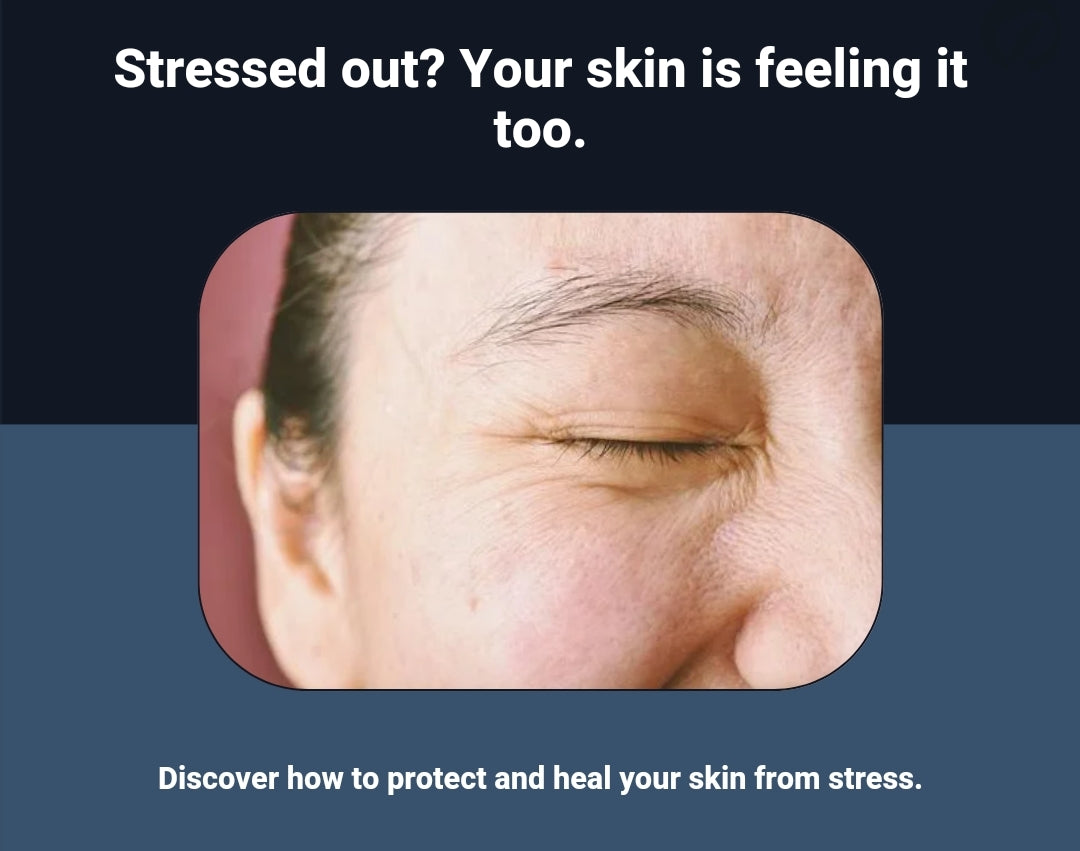
The Surprising Effects of Stress on Your Skin: Tips for a Healthier Complexion
Introduction: Unveiling the Connection Between Stress and Skin Health
In today's fast-paced world, stress has become a common yet often underestimated factor affecting our overall health, particularly skin health. The skin, a mirror to our inner well-being, reflects the turmoil wrought by stress in various forms. This article delves into the intricate relationship between stress and skin health, shedding light on how mental and emotional pressures manifest physically.
Decoding the Stress Response: Cortisol and Skin Reactions
At the heart of stress-related skin issues lies cortisol, a hormone released during stressful episodes. Dubbed the 'stress hormone', cortisol orchestrates a series of reactions in the body. Its elevation disrupts the delicate balance of the skin's ecosystem, leading to increased oil production, inflammation, and a weakened skin barrier. This hormonal fluctuation is the primary catalyst for stress-induced skin conditions, ranging from acne to an overall decline in skin resilience.
Common Stress-Induced Skin Issues: From Acne to Aging
The spectrum of skin issues stemming from stress is broad and multifaceted. Acne, perhaps the most notorious, emerges due to increased sebum production under stress. But the implications extend further. Chronic stress accelerates the skin's aging process, contributing to the formation of fine lines and a decrease in elasticity. Additionally, stress can lead to skin dehydration, causing a lackluster and flaky appearance. The cumulative effect of these conditions is a complexion that looks and feels significantly impacted by life's pressures.

The Vicious Cycle: How Stress Worsens Existing Skin Conditions
For those with pre-existing skin conditions like eczema, rosacea, or psoriasis, stress acts as a catalyst for flare-ups. The increased cortisol levels exacerbate the inflammatory response in the skin, intensifying redness, itchiness, and discomfort. This exacerbation can create a challenging cycle where stress worsens skin symptoms, which in turn can elevate stress levels, forming a relentless loop that hinders both mental and skin health.
Mind-Body Connection: Psychological Stress and Skin's Appearance
The influence of stress on the skin transcends physical reactions and delves into the realm of psychological impacts. Emotional turmoil can lead to neglect in skincare routines, further deteriorating skin health. Additionally, stress can manifest in physical habits like furrowing brows or frowning, which over time can etch deeper lines into the skin. The link between mind and body is evident as our emotions directly influence our skin's appearance, highlighting the need for mental wellness as part of skincare.
Holistic Management: Combating Stress for Skin Wellness
Addressing stress-induced skin issues calls for a holistic approach that encompasses both mental and physical well-being. Techniques like mindfulness meditation, deep breathing exercises, and yoga not only alleviate mental stress but also promote skin health. Incorporating these practices into daily routines can lead to significant improvements in both the mind and skin's condition. Additionally, embracing hobbies or activities that bring joy and relaxation can create a positive impact on one's emotional state and, consequently, on skin health.
The Role of Diet and Exercise in Skin and Stress Management
Nutrition and physical activity play pivotal roles in managing stress and its effects on the skin. A diet rich in antioxidants, omega-3 fatty acids, and hydrating foods supports skin health and combats inflammation. Foods like berries, nuts, and green leafy vegetables are excellent for maintaining skin vitality. Regular exercise, meanwhile, boosts circulation and endorphin levels, which not only improves skin tone and health but also reduces stress. Incorporating a balanced diet and consistent exercise regimen can be transformative in managing stress and enhancing skin health.
The Power of Sleep: Restoring Skin Health Amidst Stress
Sleep is a critical factor in both stress management and skin health. Quality sleep allows the body to repair and rejuvenate. During sleep, skin cells undergo repair and regeneration, making adequate rest essential for maintaining a healthy complexion. Lack of sleep can exacerbate stress and its visible impact on the skin, such as under-eye circles and a dull complexion. Establishing a regular sleep schedule and creating a restful sleeping environment are crucial steps in mitigating stress's impact on the skin.
Advanced Skincare Tips for Stress-Affected Skin
For those dealing with stress-related skin issues, adopting a tailored skincare routine is vital. Products rich in calming ingredients like aloe vera, chamomile, and green tea can soothe stressed skin. It's also important to choose products that strengthen the skin barrier, such as those containing ceramides and hyaluronic acid. Avoiding harsh chemicals and over-exfoliation is crucial, as stressed skin is more vulnerable to irritation. Integrating targeted treatments like hydrating masks or serums high in antioxidants can provide additional support to stressed skin.
Conclusion: Embracing a Comprehensive Approach for Healthier Skin
The journey to healthier skin in the face of stress is multifaceted, encompassing mental, physical, and emotional care. Understanding the profound connection between stress and skin health is the first step. Implementing strategies that address both the causes and symptoms of stress — through mindfulness, nutrition, exercise, sleep, and targeted skincare — is essential. By embracing this comprehensive approach, one can effectively combat the effects of stress, leading to not just a healthier complexion, but an enhanced overall well-being.

